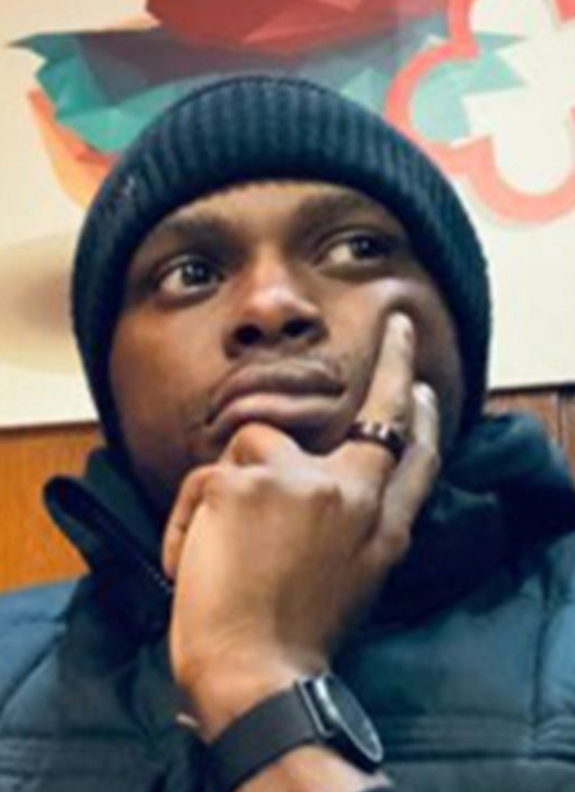
“You Did Me Dirty, Man!” – US-Based Nigerian Man Calls Out Former Lecturer for Failing Him While Representing School at NUGA Games

In a shocking revelation that has reignited conversations around the unfair treatment of student-athletes in Nigerian universities, a US-based Nigerian man, Daniel Fálonípè, has publicly accused his former lecturer of unjustly failing him in a course despite officially representing the school at the 2013 Nigerian University Games Association (NUGA) games. The emotional outburst, shared via social media, has since stirred reactions from across the globe.
According to Fálonípè, the injustice took place while he was a student at the Federal University of Technology, Akure (FUTA), one of Nigeria’s foremost institutions known for producing top-tier talents across various disciplines. While representing FUTA at the prestigious NUGA games, where he won a gold medal, he returned to school only to be met with academic punishment instead of honor. “I failed a course because I wasn't available for the field trip while I was winning a gold medal for FUTA at the Nigeria University Games in 2013,” he wrote. “The professor said he got the exemption letter from the senate, but he didn't care because his class was ‘more important’.”
The professor in question, identified as Mr. Thomas, has been further called out by Daniel for allegedly using punitive and humiliating methods against him. In another tweet, Daniel disclosed that the lecturer once instructed him to pack an entire classroom filled with chairs up a hill as a requirement for passing his class — this despite informing the lecturer several times that he was feeling unwell. “This is him. Mr Thomas… you did me dirty, man! You instructed me to pack a classroom full of chairs up a hill as a requirement for passing your class, after repeating to you many times that I wasn’t feeling too well,” Daniel revealed.
With decades of professional experience, Mr. Oludele Thomas is listed as a lecturer in the Department of Estate Management at FUTA. His profile on ResearchGate highlights his academic credentials, including a Doctor of Philosophy, with research interests spanning Urban Economics and Estate Management. However, this recent accusation threatens to cast a long shadow over his reputation as a respected academic in Nigerian higher education.
The allegations have sparked outrage online, with many Nigerians expressing deep frustration over a culture in which lecturers abuse power, disregard institutional policies, and treat students — even those bringing pride to the institution — with contempt. Some users have gone on to share similar stories of academic victimization, echoing Daniel’s pain and the helplessness that often comes with such experiences.
Fálonípè’s story also brings to light the plight of student-athletes in Nigerian universities. Unlike in other countries where sports talents are celebrated and supported with robust academic accommodations, Nigerian institutions have a long-standing history of sidelining or even punishing students who attempt to balance athletic excellence with academic success. It is not uncommon to hear of students returning from national competitions to face missing scripts, failed courses, or retributive assignments from offended lecturers.
The most jarring part of Daniel’s testimony lies not just in the academic penalty, but in the personal humiliation. “You’re wicked. And you deserve whatever you get,” he wrote, a raw and painful conclusion that shows how deep the wound still is — even more than a decade later. His choice to speak out now, as a US-based professional who has moved on from the institution, underscores a growing trend of former students shedding light on past injustices once they have left the reach of their abusers.
As of now, neither FUTA nor Mr. Thomas has released an official statement in response to the allegations. Attempts to reach Mr. Thomas via the contact details on his public profile have gone unanswered, leaving the court of public opinion to deliberate the matter in full force.
The silence from FUTA is particularly troubling to many, as this is not the first time the institution has been linked with reports of students being mistreated by staff. Stakeholders in the education sector are urging the institution to investigate the matter thoroughly and to use the opportunity to reassess the policies governing the treatment of student-athletes and the power wielded by academic staff.
Daniel’s case is a stark reminder that the legacy of a university is not just in the buildings it constructs or the publications its lecturers produce — but in how it treats the very students who walk its halls and represent it on national and global platforms. While Daniel may now be in the United States, building a life and career of his own, the experience he endured at FUTA remains a haunting example of how Nigerian academia sometimes fails those it should be uplifting.
With the conversation now taking center stage online, more and more former students are beginning to share their stories. This incident may well be the catalyst for a long-overdue reckoning within the Nigerian academic space — one that finally centers on justice, accountability, and respect for student dignity.
Daniel Fálonípè’s courage to speak up, even after many years, serves not only as a cry for justice but as a call to action. If Nigerian universities are to maintain their relevance and integrity in an increasingly global academic landscape, they must evolve beyond intimidation and ego. They must protect and honor students, especially those who bring glory to their name.
As more people react and share their own stories, one thing is clear: silence is no longer an option. The ghosts of academic injustice are being summoned — and they’re demanding answers.


